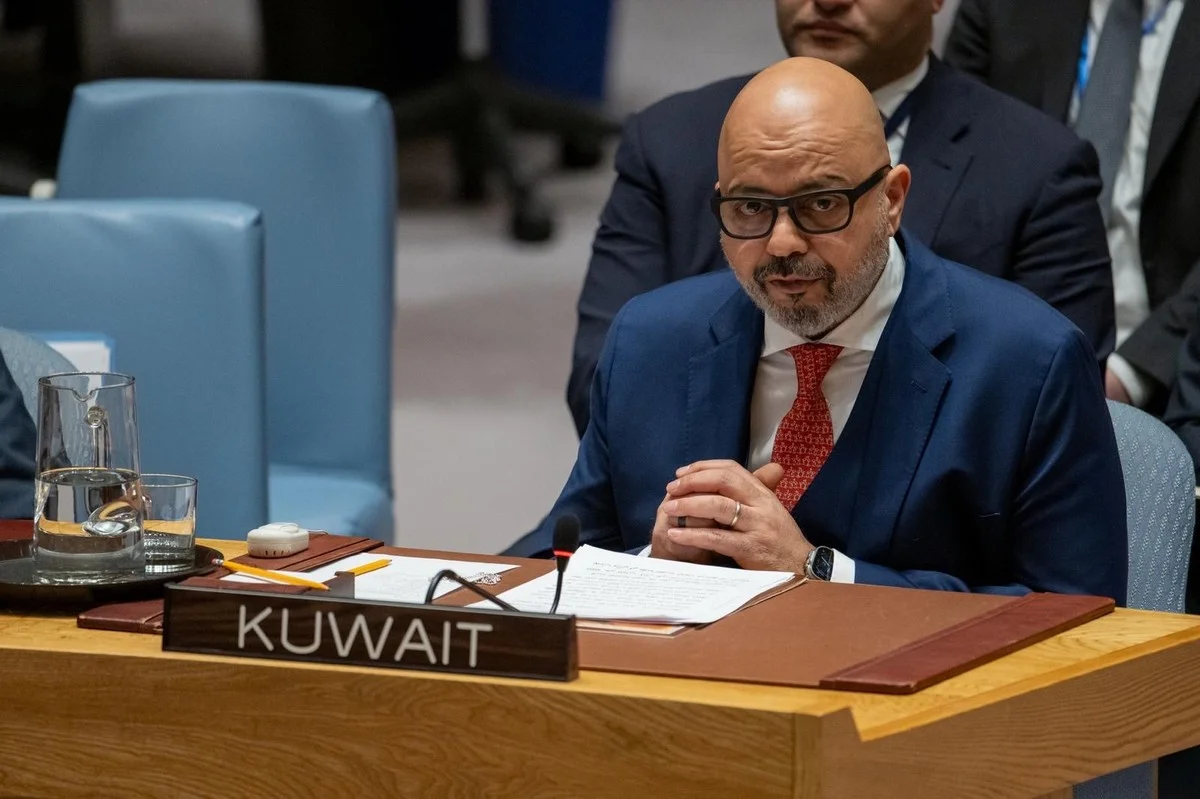07/12/2024
07/12/2024

NEW YORK, Dec 7: Kuwait's Permanent Representative to the United Nations, Ambassador Tariq Al-Bannai, emphasized that moving forward with efforts to locate and identify the remains of prisoners, missing persons, and Kuwaiti properties requires a genuine commitment. This commitment, he said, must be demonstrated by translating words into meaningful actions, free from procrastination and delay.
In his speech at a UN Security Council session on Friday evening, Al-Bannai referenced the 41st report from UN Secretary-General Antonio Guterres, which highlighted a "painful human story" dating back to the 1990s. He pointed out the impact of this difficult period, which led to displaced families and the separation of 602 missing persons. Al-Bannai noted that efforts to search for and identify the remains of the remaining 308 missing persons continue.
He stressed the importance of the UN's proactive follow-up on the activities of the relevant parties and the need for transparency in presenting the situation accurately through the Secretary-General’s periodic reports. These reports, he added, are at the forefront of their collective efforts.
Al-Bannai also acknowledged that the United Nations Assistance Mission for Iraq (UNAMI), the International Committee of the Red Cross (ICRC), and the member states of the tripartite and technical subcommittees—Saudi Arabia, the United States, the United Kingdom, France, Iraq, and Kuwait—are well aware of the slow progress on the ground regarding this file. He warned that any delay or hesitation would impede the progress, pointing to recent committee meetings that reflect this stagnation and the intransigence of some parties.
He emphasized that the families of prisoners and missing persons have the right to expect honest and sincere efforts to accelerate search operations, which would help ease their suffering and bring them closer to the long-awaited truth.
Regarding the conclusion of the UNAMI mission at the end of next year, Al-Bannai stated that Kuwait’s priority lies in establishing an international mechanism to effectively push forward efforts to identify the remains of the last missing person and recover all lost Kuwaiti property, including the national archives.
Al-Bannai also urged the United Nations to appoint a high-level coordinator for the issue, as such a mechanism had previously facilitated the identification of the remains of 234 missing persons and the recovery of many properties seized during the occupation.
On the state of Kuwaiti-Iraqi relations, Al-Bannai highlighted that the current decline in bilateral relations is not limited to the prisoners and missing persons file. It also extends to other areas of cooperation between the two countries. He noted that last year, Iraq made decisions that resulted in the cancellation of agreements that had been in effect for years, undermining the progress achieved in recent years. These decisions included: the cancellation of work under the 2008 Security Exchange Protocol, failure to respond to Kuwait’s requests for meetings of joint technical teams under the 2012 Agreement Regulating Maritime Navigation in Khor Abdullah, and the suspension of meetings for the technical legal committees on the demarcation of maritime borders beyond Marker No. (162), which had been agreed upon since 2021.
Al-Bannai reaffirmed Kuwait's commitment to the terms of the maritime navigation agreement in Khor Abdullah and the Security Exchange Protocol, emphasizing the importance of restoring bilateral relations to the right course. He also reiterated Kuwait's commitment to ensuring the security and safety of the vital waterways in the region, which now host several significant strategic projects. This, he said, necessitates securing and defending these areas, which may be at risk if the relevant agreements are canceled.
Al-Bannai called on Iraq to correct the legal status of the maritime navigation agreement and resume meetings of the technical teams, as well as the joint legal technical teams, to complete the demarcation of maritime borders beyond Marker No. (162) in line with international law and the United Nations Convention on the Law of the Sea of 1982.
Concluding his remarks on pending issues between the two countries, Al-Bannai referenced the speech of His Highness the Amir of Kuwait, Sheikh Meshal Al-Ahmad Al-Jaber Al-Sabah, at the 45th Summit of the Gulf Cooperation Council. Al-Bannai emphasized that certain files, which are relatively easier to address, could significantly benefit Kuwaiti-Iraqi relations. He urged the activation of existing mechanisms to follow up on these issues and expand the foundations of bilateral cooperation.


